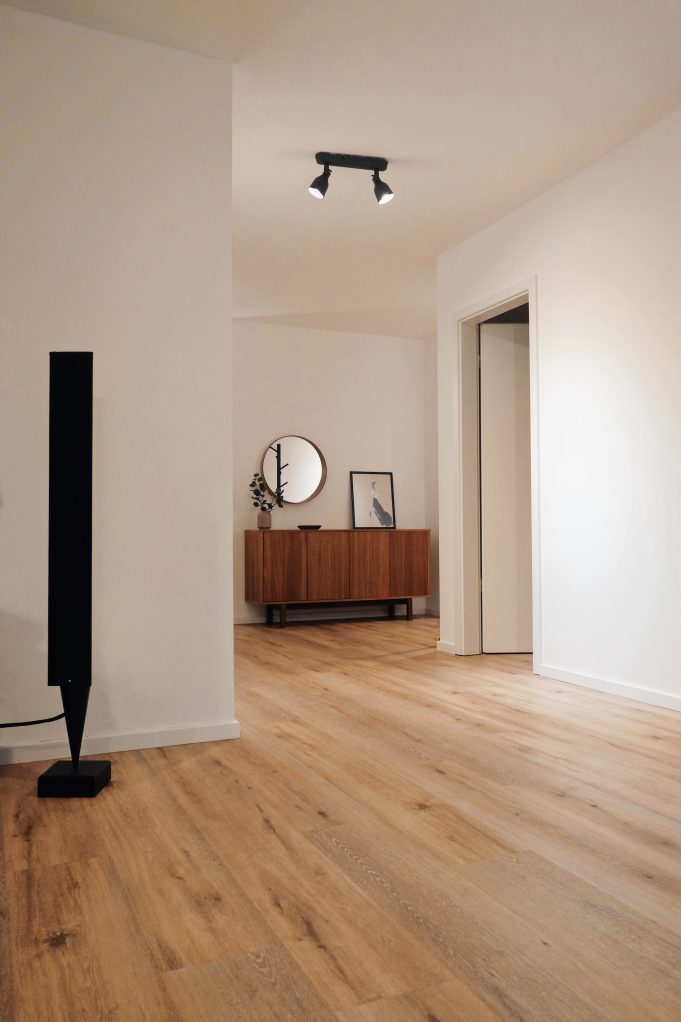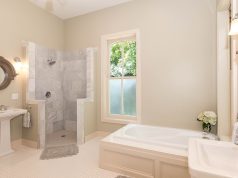While it can be all too easy to forget about what a certain flooring type feels, or even sounds like to walk on, and instead focus on how it will look in your home, neglecting such considerations could result in a poor investment and a disappointing choice.
Ultimately, a floor should be comfortable to walk on, easy to maintain (and easy to keep looking and performing at its best), and sustainable. Whether you choose vinyl plank flooring or herringbone vinyl, either way, vinyl is a great choice on each of these levels, although naturally, other types of flooring exist, such as the 9 listed below:
Hardwood
Choose between solid wood and engineered wood flooring, with options of oak, maple, ash and walnut. Solid wood flooring is as the name suggests; one piece of solid wood, while engineered wood flooring is comprised of a thin layer of real wood bonded to several layers of plywood.
Laminate
An engineered product also, laminate doesn’t use a wooden veneer on its surface, however, but an image of a material (such as wood or stone) with a plastic coating over it to keep it protected.
Vinyl
Tough, long lasting and resilient, vinyl flooring has experienced something of a resurgence of late, and coming in so many styles and varieties, it’s easy to see why. With luxury vinyl tiles also an option nowadays, there really is a type of vinyl flooring to suit every home.
From the type of vinyl flooring that is budget-friendly and easy to install without professional help, to luxury herringbone vinyl planks with hardwearing top layers and plenty of cushioning layers, if you’re looking to upgrade or replace your flooring, you can’t go far wrong with vinyl.
Carpet
Although other more hardwearing and resilient types of flooring have become popular in recent years, carpet is still chosen by many homeowners seeking the ultimate in luxury foot feel and opulence. Choose from tufted carpet, or woven carpet; the latter of which is typically costlier.
Stone
Timeless as a type of flooring, stone is similar to wood in that it can add significant value to a property once installed. Whether sedimentary, igneous or metamorphic stone is used, all types of stone flooring are durable, and exceptionally pleasing to look at; they are however, relatively costly.
Concrete
No longer the flooring of choice for industrial buildings alone, concrete is now being used successfully for floors and even kitchen counters in domestic properties. With the ability to dye it different colours, or apply a different surface treatment, concrete works well in modern homes.
Tiles
Whether you choose porcelain or ceramic tile flooring, both make stunning choices for floors in homes of all styles. Porcelain floor tiles are harder and less porous than their ceramic counterparts, which are more affordable thanks to the fact that they’re made of water and sand combined. Available in a wide array of styles, sizes, colours and designs, tiles will likely never go out of fashion in the world of interior design.
Cork
A renewable product coming from the harvested bark of cork trees, this particular flooring product can work well in certain environments, but with varying degrees of quality, it’s important to buy cork flooring from a specialist flooring company.
Linoleum
Made from a combination of linseed oil and wood, similar to vinyl, this natural type of flooring is available in sheets or tiles. Although not as popular a choice as vinyl, it’s worth considering if you’re looking for a tough flooring material for your home or business.
The best way to make the right choice when it comes to flooring for your home or business, is to research your options thoroughly and seek advice from an unbiased, but professional source.














